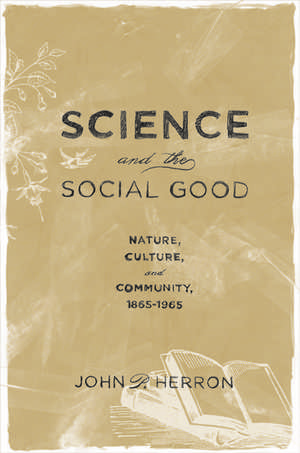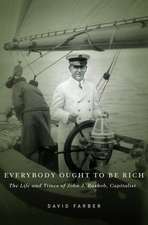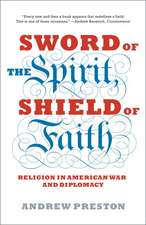Science and the Social Good: Nature, Culture, and Community, 1865-1965
Autor John P. Herronen Limba Engleză Hardback – 4 feb 2010
Preț: 420.47 lei
Preț vechi: 579.23 lei
-27% Nou
Puncte Express: 631
Preț estimativ în valută:
80.45€ • 84.00$ • 66.59£
80.45€ • 84.00$ • 66.59£
Carte tipărită la comandă
Livrare economică 25-31 martie
Preluare comenzi: 021 569.72.76
Specificații
ISBN-13: 9780195383546
ISBN-10: 0195383540
Pagini: 288
Dimensiuni: 236 x 155 x 31 mm
Greutate: 0.56 kg
Editura: Oxford University Press
Colecția OUP USA
Locul publicării:New York, United States
ISBN-10: 0195383540
Pagini: 288
Dimensiuni: 236 x 155 x 31 mm
Greutate: 0.56 kg
Editura: Oxford University Press
Colecția OUP USA
Locul publicării:New York, United States
Recenzii
overall he achieves a successful balance in recording both lives and times. Above all, his account provides a forceful reminder of the historical intersections of nature, science, and society.
Notă biografică
John Herron is Assistant Professor of History at the University of Missouri-Kansas City and the editor of Human/Nature: Biology, Culture, and Environmental History.











